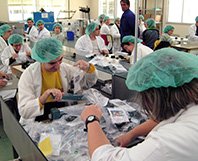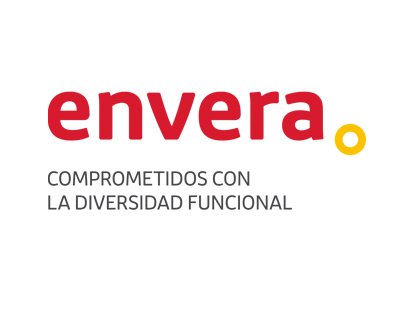The labor market insertion of people with disabilities depends, on the one hand:
- of aspects such as the individual's own capabilities, i.e., the type and degree of disability
- and, on the other hand, contextual aspects, such as the social and family structure he or she possesses or the existing labor supply
The labor supply will be determined by the labor demand for people with disabilities, whether through sheltered employment, ordinary companies or public employment, i.e., their job opportunities (disability, training and work...).
The Law for the Social Integration of the Handicapped (LISMI 13/1982), implied a change of great relevance in the legal attention to disability, constituting the backbone of the labor insertion policies for people with disabilities in Spain. As a result of this law, Special Employment Centers were created to provide sheltered employment as a means of accessing the ordinary market.
Currently, the General Law on Disability unifies all existing regulations on the subject and establishes that disability must be considered in all political actions and by all Administrations. If you want more information click here:
http://www.msssi.gob.es/ssi/discapacidad/informacion/leyGeneralDiscapacidad.htm
What is a Special Employment Center?
Special Employment Centers (CEE) are companies promoted mainly by associations of people with disabilities and/or their families, without prejudice to the fact that any individual or legal entity may establish one.
The main objective of a Special Employment Center is to perform productive work, participating regularly in market operations. It therefore has an entrepreneurial character.
At the same time, it is a means of integrating the greatest number of people with disabilities into the normal work regime, since it also aims to ensure paid employment and the provision of personal and social adjustment services required by its workers with disabilities.
EWC, a company or a service for people with disabilities?
It is unquestionable that the Special Employment Centers have been the main tool to facilitate the labor insertion of the disabled population and, we could even say, the only alternative for people with severe disabilities. The growth of these Centers (whether they are for-profit or non-profit and whether or not they are linked to associative movements) has been spectacular, as has the number of jobs created for people with disabilities, which demonstrates the achievement of a clear objective: to provide an employment alternative for those who are excluded from ordinary employment.
However, we cannot lose sight of the fact that, within the current business structure in Spain, Special Employment Centers operate in an open market and have to find their niche, a task that, on many occasions, seems onerous and difficult. Therefore, not only must they generate value for their clients, but they must also be economically sustainable and profitable.
The difference with respect to what has been called an ordinary company lies in its clear commitment to another type of profitability: social.
The social and labor inclusion of people with disabilities is the raison d'être of a Special Employment Center, it is its philosophy, it is what it has been created for and if it were not so, if there is no profitability and social responsibility, we should not be talking about a Special Employment Center. In other words, one of the obligations of any company is to generate wealth and jobs, but in the case of Special Employment Centers it is not the only one, the CEE has to be a social reference and must represent ethical, social and solidarity values.
Therefore, the objective of the Special Employment Centers is twofold:
- to become a profitable and economically sustainable company where,
- people with disabilities acquire the personal, occupational and social skills necessary for their subsequent integration, where possible, into the regular labor market.









